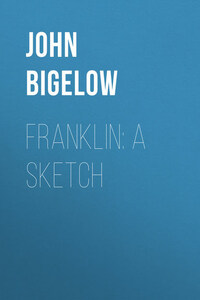Franklin, Benjamin (1706-1790), one of the most eminent journalists, diplomatists, statesmen, and philosophers of his time, was born in the city of Boston, and in the colony of Massachusetts Bay, on the 17th of January 1706. He was the youngest of ten children, and the youngest son for five consecutive generations. His father, who was born at Ecton, in Northamptonshire, England, where the family may be traced back for some four centuries, married young, and emigrated to America with three children in 1682, From his parents, who never knew any illness save that of which they died (the father at eighty and the mother at eighty-five), he inherited an excellent constitution, and a good share of those heroic mental and moral qualities by which a good constitution is preserved. In his eighth year Benjamin, who never could remember when he did not know how to read, was placed at school, his parents intending him for the church, That purpose, however, was soon abandoned, and in his tenth year he was taken from school to assist his father, who, though bred a dyer, had taken up, on his arrival in New England, the business of tallow-chandler and soap-boiler. The lad worked at this, to him, most distasteful business, until his twelfth year, when he was apprenticed to his elder brother James, then just returned from England with a new printing press and fount of type, with which he proposed to establish himself in the printing business. In 1720-31 James Franklin also started a newspaper, the second that was published in America, called The NewEngland Courant. Benjamin's tastes inclined him rather to intellectual than to any other kind of pleasures, and his judgment in the selection of books was excellent. At an early age he had wade himself familiar with the Pilgrim's Progress, with Locke On the Understanding, and with some odd volumes of the Spectator, then the literary novelty of the day, which he turned to good account in forming the style which made him what he still remains, the most uniformly readable writer of English who has yet appeared on his side of the Atlantic. His success in reproducing articles he had read some days previously in the Spectator led him to try his hand upon an original article for his brother's paper, which he sent to hire anonymously. It was accepted, and attracted some attention. The experiment was repeated until Benjamin had satisfied himself that his success was not an accident, when he threw off his disguise. He thought that his brother treated him less kindly after this disclosure; but that did not prevent James from publishing his paper in Benjamin's name, when, in consequence of some unfortunate paragraphs which appeared in its columns, he could only obtain his release from prison, to which the colonial assembly had condemned him, upon on that he "would no longer print the New England Courant." The relations of the two brothers, however, gradually grew so inharmonious that Benjamin determined to quit his brother's employment and leave New England. He sold some of his books, and with the proceeds, in October 1723, he found his way to the city of Philadelphia, where, 400 miles from home, at the immature age of seventeen, without an acquaintance, and with only a few pence in his pocket, he was fortunate enough to get employment with a Jew printer named Keimer. Keimer was not a man of business, and knew very little of his trade, nor had he any very competent assistants. Franklin, who was a rapid composer, ingenious and full of resources, soon came to be recognized by the public as the master spirit of the shop, and to receive flattering attentions from prominent citizens who had had opportunities of appreciating his cleverness. Among others, Sir William Keith, the governor of the province, who may have possessed all the qualifications for his station except every one of the few which are quite indispensable to a gentleman, took him under his patronage, and proposed to start him in business for himself, and to give hint the means of going to England and purchasing the material necessary to equip a new printing office. Franklin, rather against the advice of his father, whom he revisited in Boston to consult about it, embraced the governor's proposal, took passage for London, which he paid with his own money (the governor being more ready with excuses than coin), and on reaching London in December 1724, where he had been assured he would find a draft to cover his expenses, discovered too late that he had been the dupe of Keith, and that he must rely upon his own exertions for his daily bread. He readily found employment at Palmer's, then a famous printer in Bartholomew Close, where, and afterwards at Wall's printing house, he continued to be employed until the 33d of July 1736, when he again set sail for Philadelphia in company with a Mr Dunham, whose acquaintance he had made on his voyage out, and who tempted him back by the offer of a position as clerk in a commercial business which he proposed to establish in Philadelphia. While in London Franklin had been engaged in setting up the type of a second edition of Wollaston's








